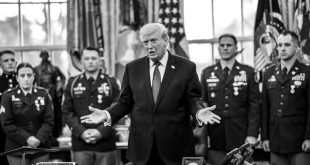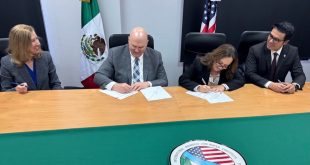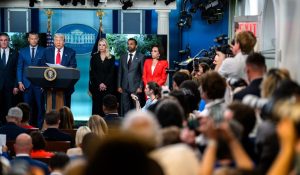On August 11, President Donald J. Trump signed an executive order declaring a public safety emergency in the District of Columbia, citing what the administration describes as a sharp rise in violent crime that threatens residents, visitors, and the operations of the U.S. government.
The order directs the Metropolitan Police Department of the District of Columbia (MPD) to provide law enforcement services for federal purposes, including the protection of federal buildings, monuments, and property, as well as ensuring the uninterrupted operation of federal agencies. Oversight of these measures has been delegated to the U.S. Attorney General, who will determine the scope of the MPD’s involvement, monitor emergency conditions, and report regularly to the president.
The authority invoked stems from Section 740 of the District of Columbia Home Rule Act, which allows the president to require the city’s mayor to make MPD services available for federal purposes during emergencies.
According to figures released by the White House, Washington, D.C., recorded a homicide rate of 27.54 per 100,000 residents in 2024—one of the highest among major U.S. cities. The administration also highlighted the District’s vehicle theft rate of 842.4 per 100,000 residents, reportedly more than triple the national average. Federal officials stated that D.C.’s violent crime, murder, and robbery rates exceed those of all 50 states, placing the city among the top 20 percent of the most dangerous urban areas worldwide.
The executive order references several recent high-profile incidents, including the murders of two embassy staff members in May, the fatal shooting of a congressional intern near the White House in June, and the assault of a White House staff member in a separate incident.
In a statement accompanying the order, President Trump said that the increase in violent crime “urgently endangers public servants, citizens, and tourists” and has forced resources to be diverted toward emergency response and heightened security measures. He argued that the inability of the city government to ensure public safety has affected the federal government’s ability to operate efficiently.
“The violence in our nation’s capital is unacceptable,” the president’s statement read. “Our government must be able to function without the constant threat of lawlessness in the streets.”
The order specifies that its provisions do not create new legal rights or benefits and that implementation must comply with applicable laws and budgetary constraints.
In a separate memorandum to Secretary of Defense Lloyd Austin, the president authorized the activation of the District of Columbia National Guard to support crime-fighting efforts. The directive grants the Defense Department authority to mobilize as many Guard members as deemed necessary and to coordinate with governors of other states to bring in additional Guard units if required.
The mobilization will remain in effect until the president determines that conditions of law and order have been restored. The memorandum states that the action is intended to safeguard law-abiding citizens, protect federal employees, and ensure that government operations continue without disruption from violent crime.
President Trump has made crime reduction in Washington, D.C., a stated priority since returning to office. Earlier this year, the administration created a federal task force aimed at improving public safety, modernizing infrastructure, and addressing what the president has described as “a breakdown” in basic services. The president has pledged to make Washington “one of the safest cities in the world” and reverse what he has called “a disgrace” in the nation’s capital.
The measures announced on August 11 place both the MPD and the D.C. National Guard under federal direction for certain law enforcement purposes. This represents one of the most significant federal interventions in the District’s policing in recent decades and could reshape the city’s law enforcement landscape in the months ahead.
The move is expected to draw both support and criticism. Proponents argue that rising crime rates in D.C. warrant immediate and decisive federal action, particularly given the city’s role as the seat of the U.S. government and host to millions of visitors annually. Supporters also point to the constitutional and statutory authority that allows for such intervention in extraordinary circumstances.
Critics, however, are likely to raise concerns over the implications for D.C.’s local governance and autonomy, arguing that increased federal control could strain relations between city officials and the administration. As of press time, local leaders had not issued a formal response to the executive order.
The Attorney General is tasked with providing regular updates to the president on the status of the emergency and may recommend further actions or the termination of the measures when warranted.
The success of the initiative will be measured by crime trends in the coming months and the degree to which the coordinated efforts between local police, federal agencies, and the National Guard impact public safety in the District of Columbia.



